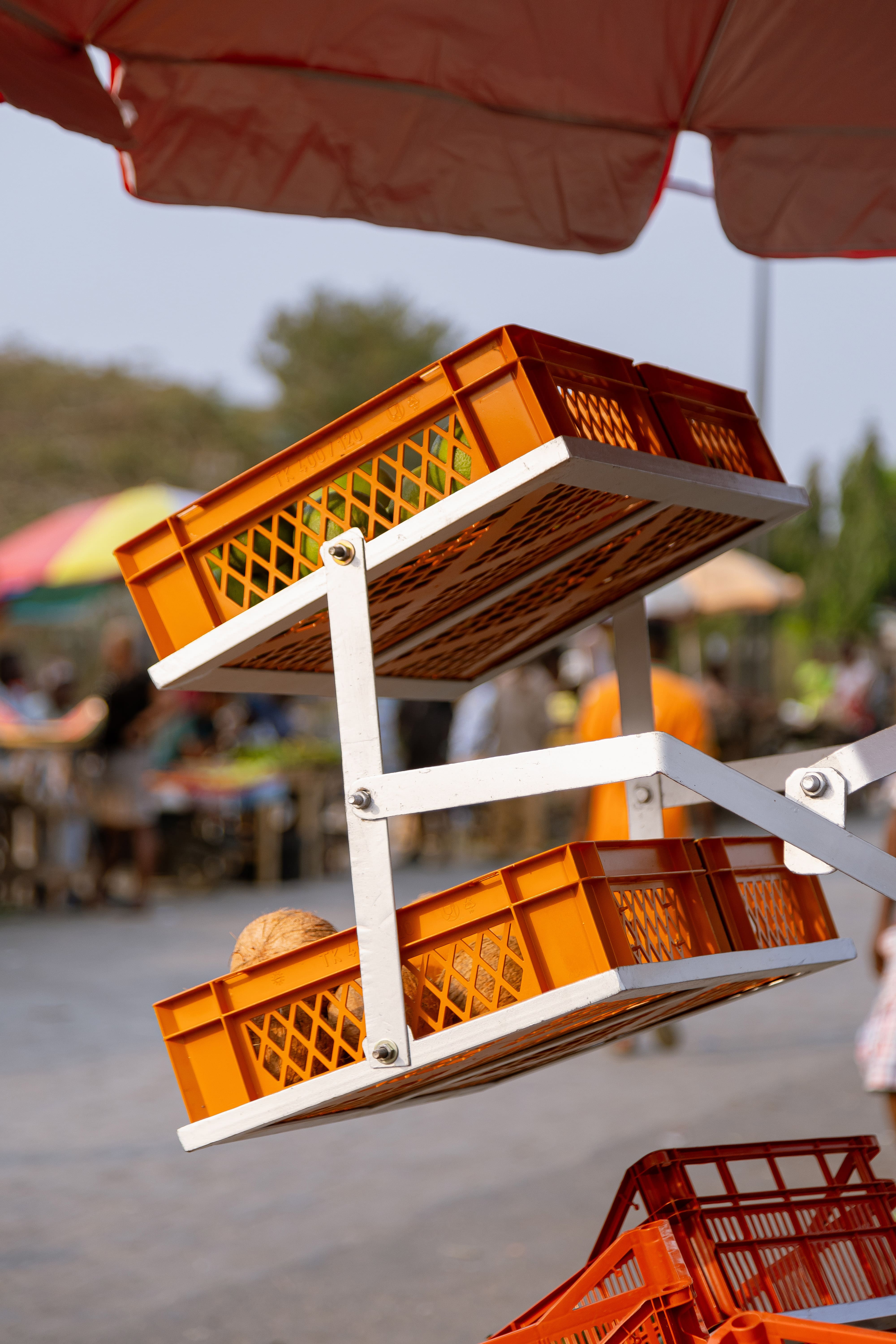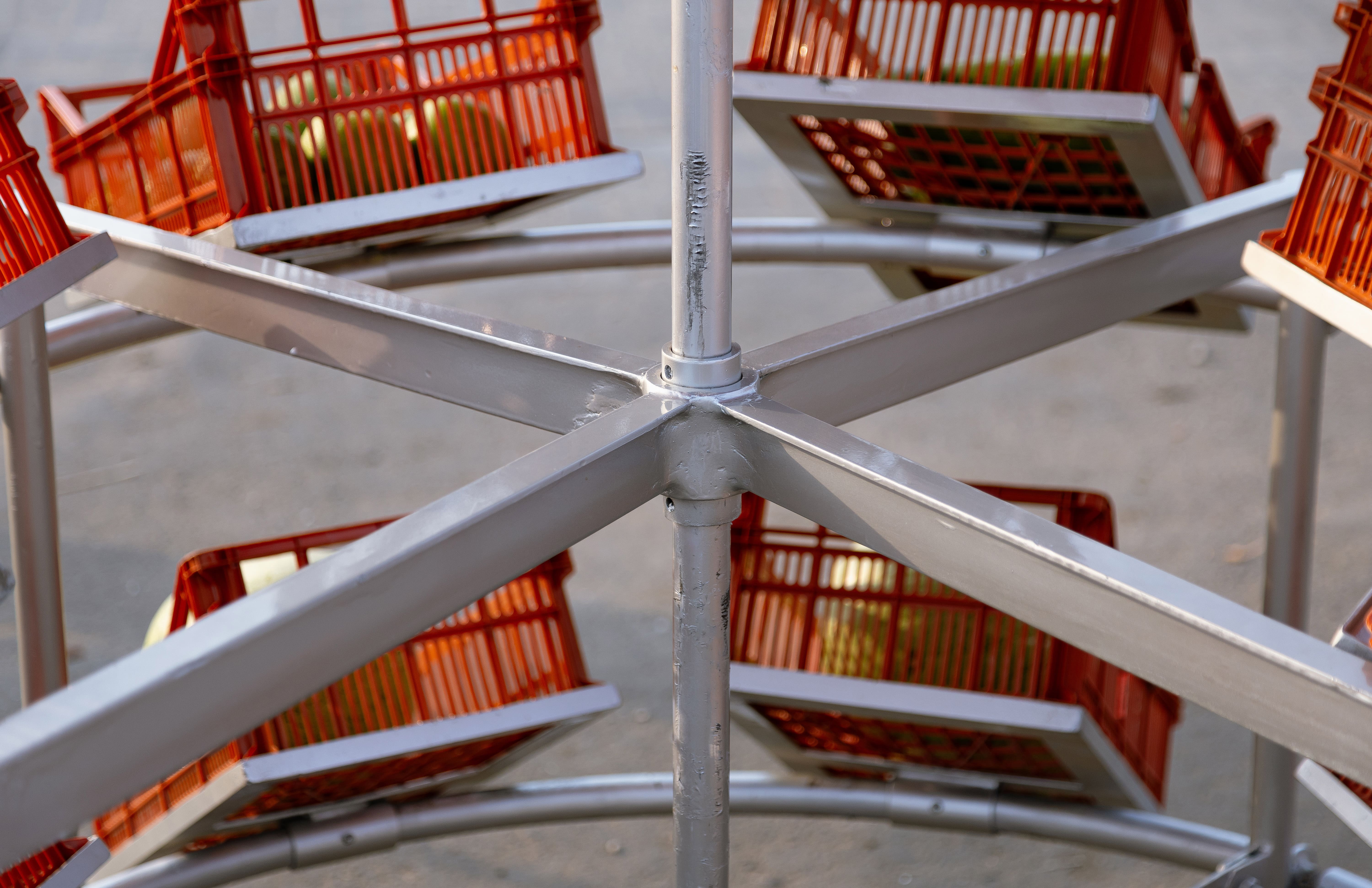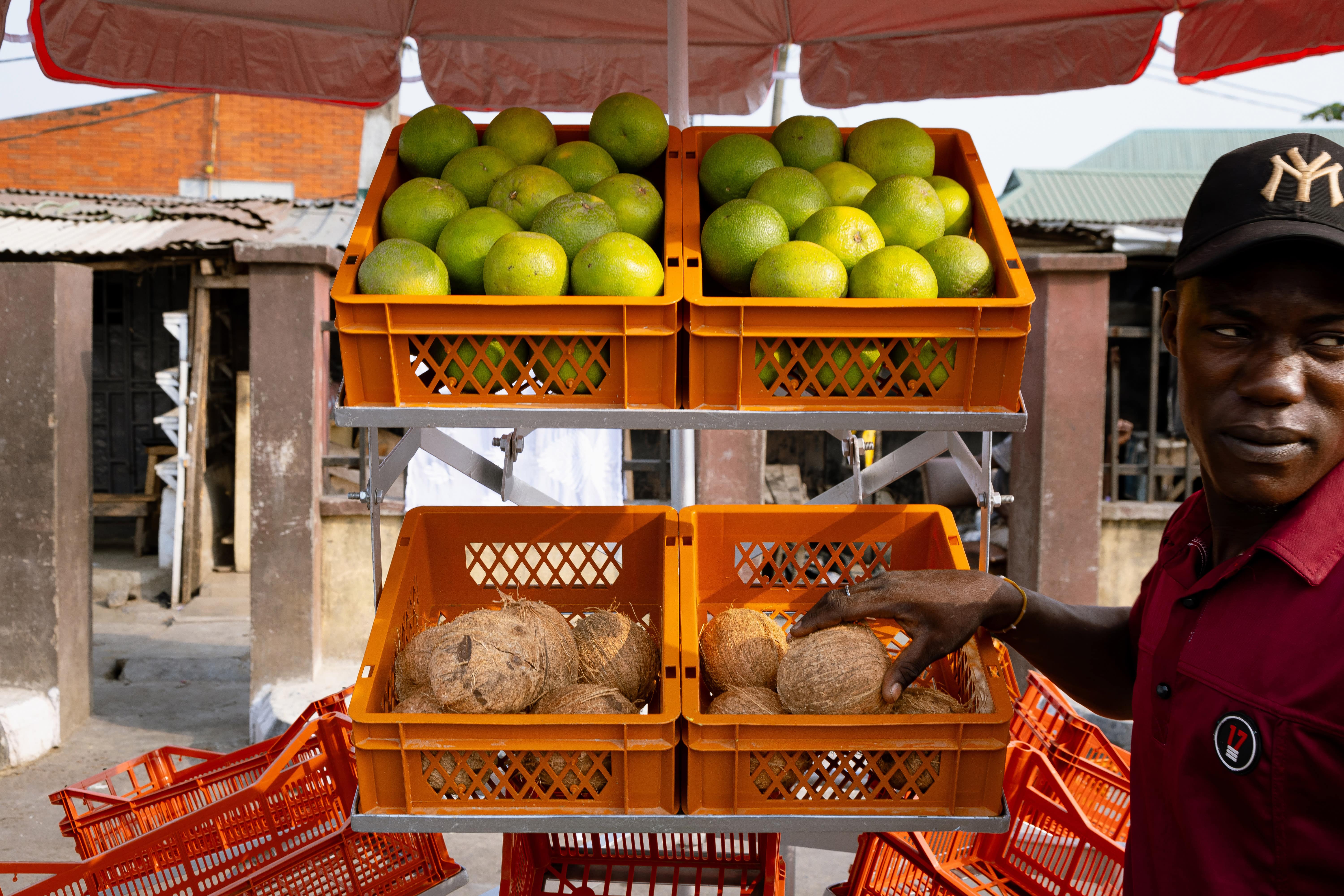In Lagos, design is resilient – uncooked, adaptive, and born of necessity – traits which might be evident all through the town, particularly in its bustling avenue life. Some of the notable examples is the colorful umbrella stalls that populate the markets. These casual merchandising methods are transitory by nature, offering versatile shelters for every kind of merchants – from comfort shops and eating places to barber outlets and past. Whereas they is probably not recognised as ‘design’ by way of a Western lens, they play a major function in shaping the town’s architectural language.
(Picture credit score: Olajide Ayeni)
‘I began residing in Lagos after my first diploma in structure and have become fascinated by the prevalence of umbrella stalls within the metropolis,’ says Paul Yakubu, a Nigerian architect who grew up some 200 miles to the east of Lagos in Benin Metropolis, southern Nigeria.
Intrigued by their significance, he started researching the function of those casual buildings in small-scale structure. By means of conversations with merchants, he found that the umbrella capabilities not solely as a shelter but in addition creates identification for store house owners and marks territory within the continually shifting areas of the markets. ‘I sought to ask the query “How do you design for informality?”’

(Picture credit score: Olajide Ayeni)
This query led Yakubu, who spent a number of years finding out and dealing in London, to develop his personal interpretation of the umbrella stand. Drawing from the useful simplicity of the prevailing stalls, his design introduces a extra structured and adaptable resolution. The umbrella crate stall contains a modular system of crates organized round a round body, permitting for versatile product show and straightforward customisation.
The design is scalable, rising from a primary four-crate module to a 20-crate construction, all inside a 12 sq m round space. As well as, the crates can pivot and rotate to accommodate several types of items, so merchants can add extra elements as their enterprise expands. The light-weight, cell construction is straightforward for merchants to move and arrange, whereas additionally echoing the transitory nature of casual market areas.

(Picture credit score: Olajide Ayeni)
Yakubu’s intention is not only to supply a useful market stall, however to create a design resolution that aligns with the adaptability and resilience of the casual areas during which they’re discovered. ‘”Design for informality” is an open-ended query that, by way of my design analysis, I’m continually discovering solutions to,’ he tells Wallpaper*. ‘Conventionally, design is seen in a proper realm the place one has to create a construction to fill a spot. However informality challenges these notions with transient spatial varieties that repeatedly negotiate and adapt, usually showing chaotic.’
For Yakubu, designing for informality is about discovering a center floor between formal design ideas and the uncooked, adaptive nature of casual areas. He believes formal design can have interaction with the traits of informality – reminiscent of its versatile varieties, supplies, and ever-changing behaviours – whereas nonetheless offering another or improved resolution. Reasonably than imposing inflexible buildings, the objective is to create designs that acknowledge and improve the fluidity and resilience inherent in casual areas.

(Picture credit score: Olajide Ayeni)
‘It is so vital to my work due to the inherent worth casual design brings to our cities,’ he says citing Lagos as a primary instance – the place the markets are sometimes seen as blighted parts of the town that should be eliminated. Nonetheless, he believes these areas communicate to the ephemeral and transitory nature of environments, the negotiation of area, and adaptive reuse of supplies. It’s inside this informality that he sees various options to the challenges of structure in our cities. ‘My work tries to interrogate, talk with these casual beliefs and in the end have a good time them by way of design to assist my society see their worth and sweetness.’
Yakubu’s umbrella crate stall is in its product growth section, with prototypes being remodeled right into a completed architectural product that will likely be accessible to open market merchants. This course of entails working with potential producers to optimise the design, in addition to conducting long-term market research to assemble extra suggestions on the prototype – a few of which is captured within the movie above, made by Yakubu himself.
‘One in all my foremost targets is for merchants to take possession of the challenge and adapt it to their wants,’ Yakubu explains. ‘I am looking for a dialogue with informality – the place merchants have interaction with this challenge, which emerged from my analysis into casual markets, adapt it, and rework it into new options from which we designers can be taught. Past creating an accessible market stall resolution for merchants, I hope to foster this dialogue – a round course of that deepens our understanding and gives solutions on find out how to design for informality.
umbrellaarchitecture.com
Supply: Wallpaper

